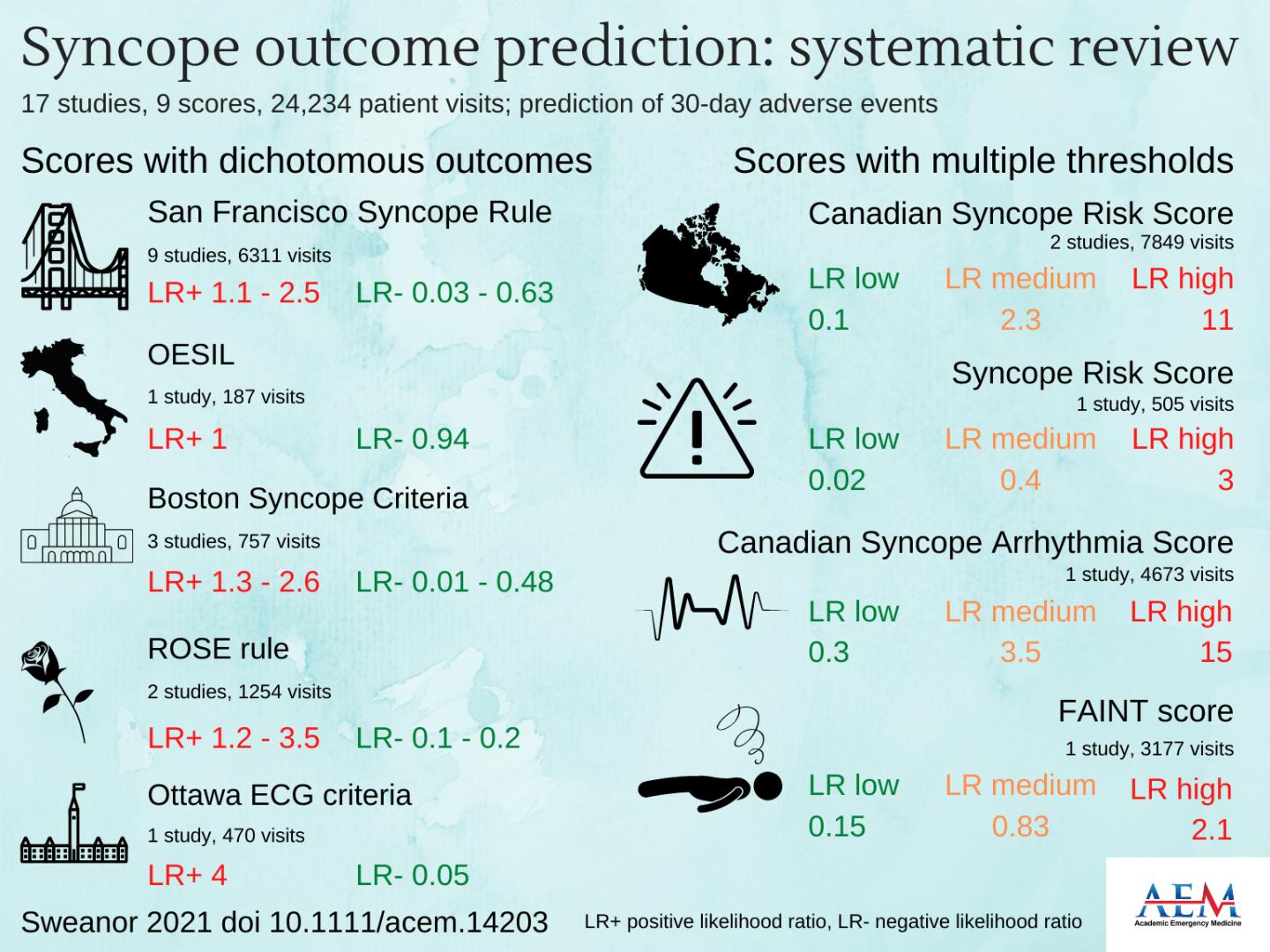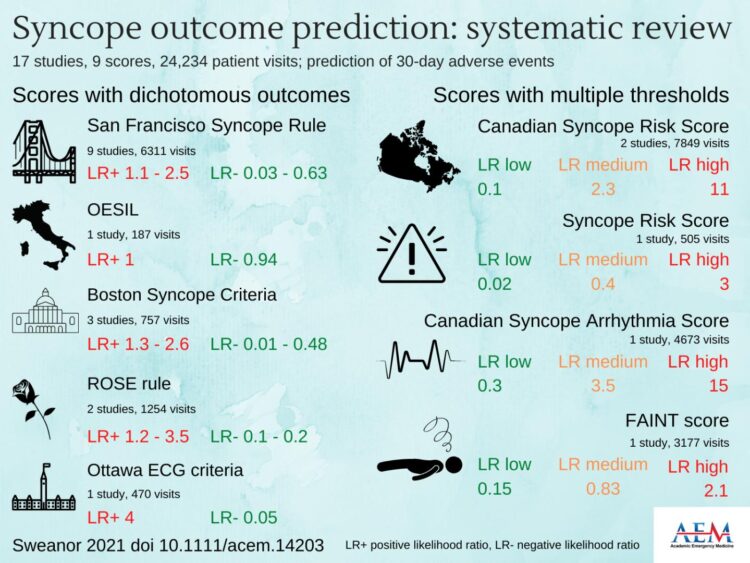
Credit: KIRSTY CHALLEN, B.SC., MBCHB, MRES, PH.D., LANCASHIRE TEACHING HOSPITALS, UNITED KINGDOM
Des Plaines, IL – The Canadian Syncope Risk Score (CSRS) is an accurate validated prediction score for emergency department patients with unexplained syncope. These are the results of a study titled Multivariable risk scores for predicting short-term outcomes for emergency department patients with unexplained syncope: A systematic review, to be published in the May issue of Academic Emergency Medicine (AEM) journal, peer-reviewed journal of the Society for Academic Emergency Medicine (SAEM).
Syncope is a common presentation to an emergency department, with patients at risk of experiencing an adverse event within 30 days. Without a standardized risk stratification system of patients, there will be health care disparities and inconsistent patient care, which may lead to poor outcomes.
Overall, this systematic review provides an updated qualitative overview of the accuracy of nine risk stratification scores among adult patients following a syncopal event. Many scores in the study are not validated or not sufficiently accurate for clinical use. Other risk scores were not validated on an independent sample, had low positive likelihood ratios for identifying patients at high risk, or had high negative likelihood ratios for identifying patients at low risk.
While more longitudinal studies are required prior to changing guidelines, the Canadian Syncope Risk Score was the most accurate at classifying patients at low and high risk for adverse events. This provides a promising ability to assist physicians in determining whether patients warrant additional workup or admission to hospital. Its impact on clinical decision making, admission rates, cost, or outcomes of care is not known and therefore, further research is recommended.
The lead author of the report is Rachel A. L. Sweanor, BMBS, from the division of internal medicine, Sunnybrook Health Sciences, and the department of medicine, University of Toronto, both in Toronto, Ontario, Canada.
Commenting on the study is Venkatesh Thiruganasambandamoorthy, CCFP-EM, MSc, associate professor in the department of emergency medicine and the School of Epidemiology and Public Health and senior scientist at the Ottawa Hospital Research Institute. Dr. Thiruganasambandamoorthy also serves as the clinical research chair in cardiovascular emergencies and as a mid-career clinical researcher at Physicians’ Services Incorporated Foundation.
“While there have been significant advances in emergency department syncope risk stratification, this systematic review highlights the weaknesses of several risk tools previously published. Risk tools reduce uncertainty in medical decision-making by providing probabilities of serious outcome at a specified time and should have undergone the three major stages of development: derivation, validation, and implementation. Implementation to demonstrate true effect on patient care is the ultimate test for any clinical decision tool.”
###
ABOUT ACADEMIC EMERGENCY MEDICINE
Academic Emergency Medicine, the monthly journal of Society for Academic Emergency Medicine, features the best in peer-reviewed, cutting-edge original research relevant to the practice and investigation of emergency care. The above study is published open access and can be downloaded by following the DOI link: 10.1111/acem.14203. Journalists wishing to interview the authors may contact Tami Craig at [email protected].
ABOUT THE SOCIETY FOR ACADEMIC EMERGENCY MEDICINE
SAEM is a 501(c)(3) not-for-profit organization dedicated to the improvement of care of the acutely ill and injured patient by leading the advancement of academic emergency medicine through education and research, advocacy, and professional development. To learn more, visit saem.org.
Media Contact
Tami Craig
[email protected]
Related Journal Article
http://dx.





